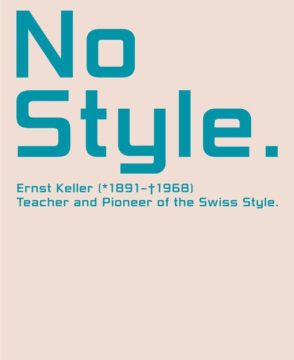In various different places, particularly in the USA, when writing the history of graphic design, Ernst Keller is referred to as the father of Swiss Style, later International Typographic Style. This is down to the large number of Keller students, who later shaped this Swiss Style and made it famous. Keller’s achievement is shown purely using his oeuvre, primarily his poster designs and his work on lettering and graphic design in architecture.
Ernst Keller’s contribution to the development of innovative, non-academic didactic principles in design training plays a fundamental role. His teaching activity starting in 1918 can be defined as one of the first systematic training programmes for graphic design in the world.
His many years of teaching between 1918 and 1956 resulted in very different designers. They include the protagonists of new graphic design such as Richard Paul Lohse, Josef Müller-Brockmann and Carlo Vivarelli or various talents of artistic illustration such as Heiri Steiner, Lora Lamm or K. Domenic Geissbühler, and innovative designers such as Hermann Eidenbenz or Gérard Miedinger. As well as scientific illustrators such as H.P. Weber or caricaturist H.U. Steger. An additional group consists of designers who teach internationally such as Pierre Gauchat, Walter Käch, Robert Sessler, Fred Troller and Josef Müller-Brockmann. This diversity of talent is an impressive documentation of the openness, sustainability and rejection of dogma evident in Ernst Keller’s teaching.
- Veröffentlicht am Freitag 11. April 2025 von Triest Verlag
- ISBN: 9783038630234
- 300 Seiten
- Genre: Design, Hardcover, Innenarchitektur, Kunst, Softcover
